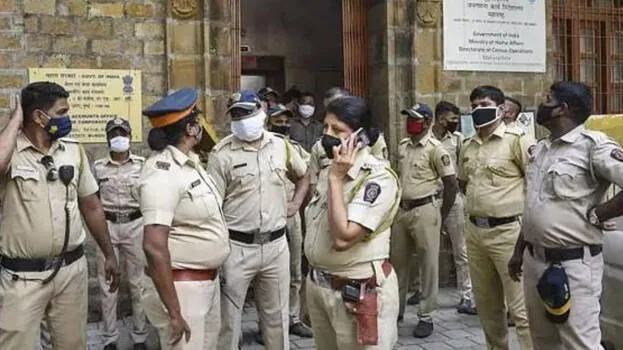
The 1973 Constitution was enacted unanimously by a legislative assembly elected through free and fair elections held on December 07, 1970. There were no street protests to any clause of the sacred document, which was thoroughly debated and then passed in March 1973. Only one member absented.
The electoral contest held on February 08, 2024, and the one held in December 1970 have several similarities and differences. In both cases, the establishment was expecting a split mandate with no clear winners. The intelligence reports proved to be grossly misleading.
In the 1970 contest in the eastern wing of the country, Mujib’s Awami League won all the seats except two, while Bhutto’s People’s Party emerged victorious in the western part. The military Junta was caught on the wrong foot. The commanders in the field Lt-Gen Sahibzada Yabub Ali Khan and Admiral S.
M. Ahsan (latter he became governor of East Pakistan), who were aware of the massive mandate and ground realities advised for a political solution. The military junta decided on Military Action, which resulted in defeat and surrender of the troops on December 16, 1971.
Thus, from a surprise mandate point of view the two elections (1970 & 2024) were very similar. The stark difference is that the elections held in 1970 were for the purpose of electing a ‘legislative assembly’ that was required to produce a constitution within ninety days or face dissolution. As the Awami League had contested the elections on a six-point agenda that sought complete provisional autonomy, the negotiations between the two leading parties (AL, PPP) were complicated even separate currency was demanded.
Bhutto wanted more time to negotiate or waiver of the ninety-day dissolution deadline. When the assembly session in Dacca was called off, Civil war started in East Pakistan, which then emerged as Bangladesh. The divided ‘legislative assemblies’ then formulated their own constitutions.
In Bangladesh, the constitution was passed on November 04, 1972, while in Pakistan an interim document was passed on April 17, 1972, followed by the permanent consensual version which was passed on April 10, 1973, to be assented by the President on April 12, 1973. Thus, the assembly mandated to formulate the constitution completed its task in the divided Pakistan. The elections held on February 08, 2024, were held under the unanimously approved constitution of 1973.
There was no mandate to rewrite the consensual document, as is being proposed now. With over 26% changes in the original document in the 26th Amendment Bill, it’s a major overhaul that requires thorough analysis and debate. Constitution-making has never been easy in the land of the pure.
Perhaps Pakistan is the only country in the world that had to formulate four constitutions (1956, 1962, 1972, 1973 and now proposed overhaul in 2024). Constitution-bashing has been the norm in the Islamic Republic of Pakistan. The electoral contest held in December 1970 was free, fair and indisputable.
The legislative legislature that came into being was thus very credible, which had the support, backing and mandate of the people. The legislature that took oath of office after the February 2024 election consists of the most controversial and disputed members. Cases against their electoral fraud are pending in election tribunals and courts.
There is a term used in the legal fraternity ‘Justice hurried is justice buried’. Legislation which is pushed through without due deliberation will be disastrous for the already fragmented democratic order. The establishment in the land of the pure has a history of constitution-bashing.
The 1956 constitution that could have kept Pakistan together was abrogated in 1958 through the nexus of Mirza and Ayub. Then the 1962 version, which was imposed by the first usurper, was annulled by the second dictator. As the country was without a legal framework, the 1972 interim version had to be passed expeditiously to lift the dreadful martial law that had caused the dismemberment of Jinnah’s Pakistan.
In the year 1977 when elections were held under the constitution, an establishment-sponsored movement was launched against the civilian government. The third takeover that followed proved to be disastrous for the nation. The third usurper disfigured the consensual document.
He showed open disdain for the constitution. It is widely rumoured that he was in the process of rewriting a fresh version when he was eliminated in mid-air. The fourth dictator got into trouble when he tried to stage a coup against his own government.
He was later tried under Article 6 of the constitution; he fled the country to save his life. The 26th Amendment is a ‘suicide attack’ on the 1973 constitution by a disputed legislature. It’s a conspiracy to weaken civilian authority, deny human rights and ruin the judicial system of the country.
The retaliation and response will be immediate and ferocious. It will create unmanageable fissures. Such clear people’s mandates like the ones in 1970 and 2024 cannot be over-ruled or ignored.
The establishment erred in both cases while deciding on the election steal mechanism based on false information gathered by the agencies. The dye has been cast. There is no going back.
It is in the interest of the Republic that manipulation of the legislature be stopped with immediate effect. Let the legal process take its course to put the democratic order and the country back on track. Using external force to push legislation will be met with an opposing force.
According to the famous saying, ‘An eye for an eye makes the whole world blind’. Blindness leads to darkness, not light that we seek. The shadows hovering over us must be curtailed.
Copyright Business Recorder, 2024.














